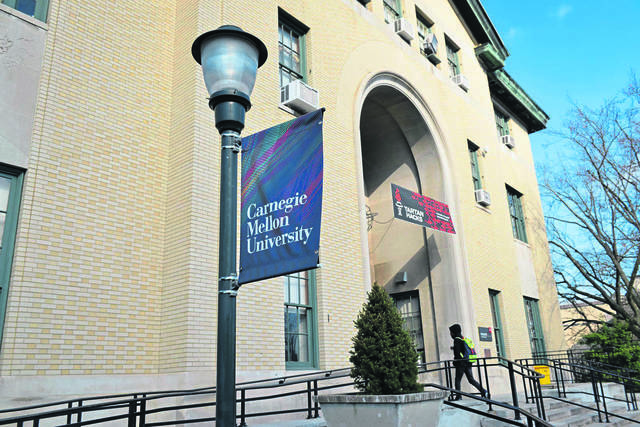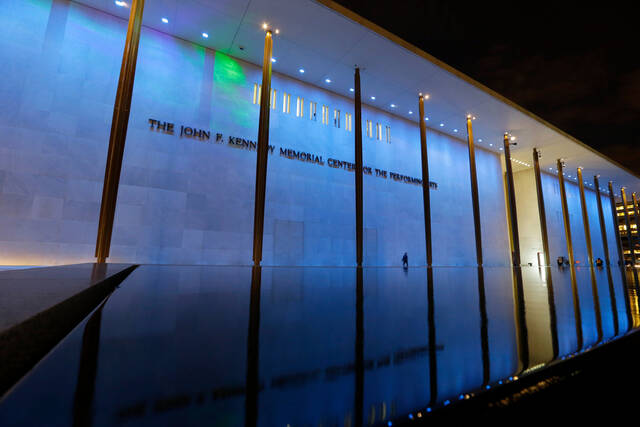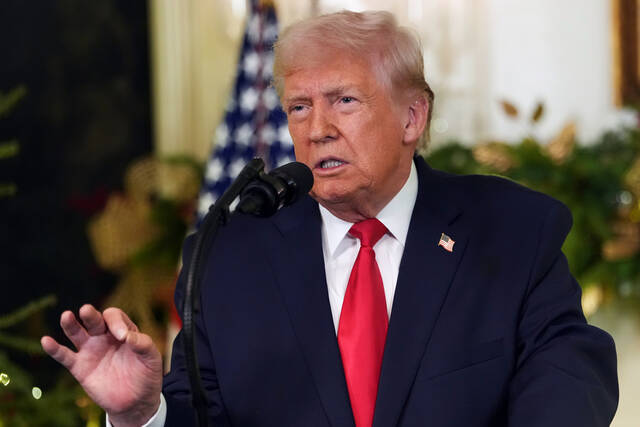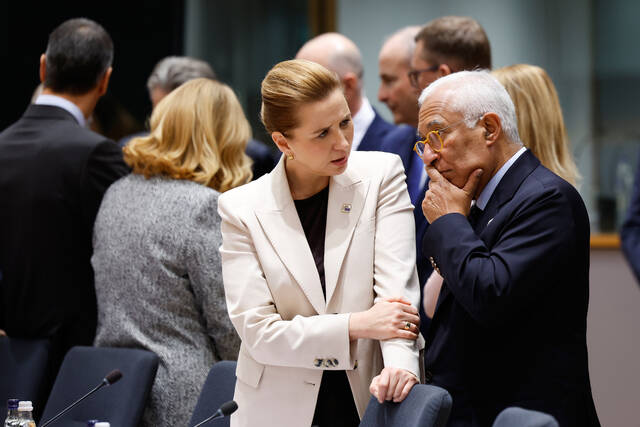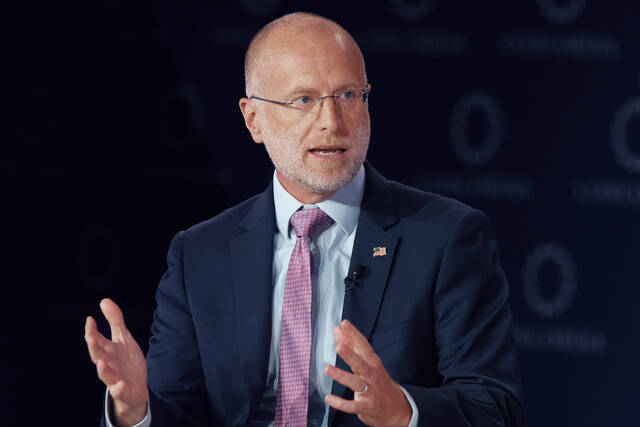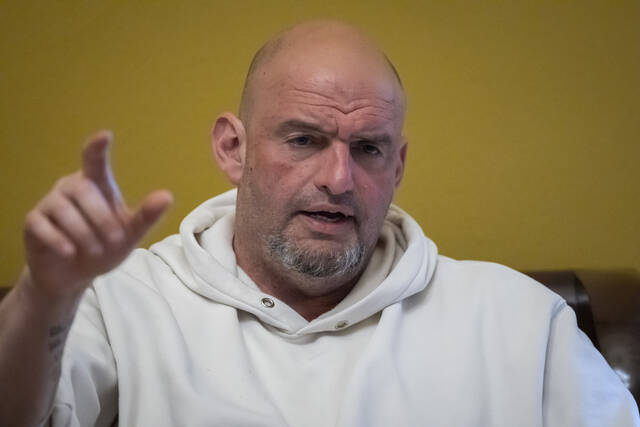Carnegie Mellon University officials on Tuesday issued a harsh statement condemning speech that may have incited last week’s attack on the U.S. Capitol, as debate over comments by some of its leading scholars raised eyebrows in academic circles across the country.
In a letter issued to the university community, a long list of administrators and deans joined CMU President Farnam Jahanian and Provost James Garrett in expressing horror at the deadly attack that left a Capitol Police officer and four rioters, including one who was shot, dead as an angry mob stormed through Washington, seeking to halt the certification of President-elect Joe Biden’s Electoral College victory.
“Both the insurrection and the incitement of it crossed the line and cannot be viewed as the kind of protected political free speech that has been foundational to our nation since its very origin,” they wrote.
The letter stressed their dedication to “constructive and respectful discourse that is grounded in fact and backed by evidence.”
It stopped short of mentioning the debate that has raged through the campus community regarding former Ambassador Richard Grenell, who was appointed a senior fellow in the CMU Institute for Politics and Strategy last summer. He is known for his lengthy diplomatic service as well as the caustic conservative commentary on his Twitter feed, including a string of tweets questioning the 2020 presidential election.
Faculty members and alumni protested Grenell’s appointment at the time. Last week, many were further outraged when a congratulatory story lauding Trump’s appointment of Grenell to the U.S. Holocaust Memorial Council and the announcement of Trump awarding Grenell the National Security Medal for his work on the Kosovo-Serbia agreement appeared on the university’s website on Jan. 6 — less than an hour after the mob stormed the Capitol.
David Andersen, a CMU computer science professor, was among those who blasted the university for hailing the accomplishments of the scholar many see as promoting disinformation about election integrity.
“Academic freedom is important, but you’re trumpeting evil,” Andersen wrote in a profanity-laced tweet.
Jahanian responded to a raft of similar complaints, writing that the post was “insensitive” in light of the events at the Capitol.
“On the day of the vote certifying the election, and especially once the U.S. Capitol was attacked by insurrectionists seeking to disrupt that certification in the president’s name, we thought that such a congratulatory message on a CMU website on that same day was inappropriate and potentially inflammatory,” CMU spokesman Jason Maderer said in an email. “That’s what we asked Director Dr. Kiron Skinner to consider, and assumably, she then made the decision to remove the article.”
That wasn’t enough for Andersen.
“While I’m glad that the university took down the press release, I’m not yet satisfied with the university’s response, nor do I suspect most of my colleagues are,” he said in an email.
The debate at Carnegie Mellon, which occasionally became heated as two sides engaged online, comes as other colleges and universities reassess their relationships with faculty members in light of recent events at the Capitol.
Rick Saccone resigned from his faculty position at Saint Vincent College in Latrobe a day after the former state lawmaker posted to social media from the rally and demonstration in Washington that preceded the Jan. 6 riot.
Seton Hill University in Greensburg severed ties with an adjunct professor after comments calling for bloodshed to cleanse American politics appeared on his social media accounts.
Skinner, the founder of the Institute for Politics and Strategy, is a foreign policy expert who was a member of Trump’s national security transition team. She served in the George W. Bush administration before landing at the university in 1999. A scholar and the author of five books on Ronald Reagan, she’s had to dodge criticism of Grenell since hiring him.
On Tuesday, she told the Tribune-Review that she defended Grenell’s activities on social media, but stopped short of commenting on or endorsing the content of them.
“He’s not doing it on CMU time or in our capacity. I know it can bleed over, but I have to support everyone in the university in their speech. It is a complicated issue within the university when so many people want a conclusion,” she said. “Do I want people to be more cordial and more civil? Of course. And Ambassador Grenell has repeatedly asked people who disagree with him to engage in discourse. … In the case of Rick Grenell, he’s been respectful to the CMU community. They may disagree on elections, but I think there is an opportunity for learning and dialogue on all sides.”
Skinner said questions about Grenell have led to productive conversations she has had with professors in computer science about how they can work together to study the events of the last year, how historians, computer scientists and social scientists can create an in-depth portrait of a society in the midst of change.
Skinner said emotions have been running high in a nation buffeted by a pandemic, racial issues and a contentious presidential election that wasn’t settled as quickly as many hoped it would be.
Her own statements, calling for a deeper look at the events of the last year, that “many people are seeing different facts” and that “we could be surprised at what we find,” have been misconstrued, Skinner said. The Chronicle of Higher Education reported on them this week.
She said she never has questioned the integrity of the election.
But she does want to sponsor research within the Institute to study various perspectives and the events of a year that she likened to 1968, when political and racial turmoil changed the nation.
“I do think we have to be careful in what we say and do, and I have been,” Skinner said. “I really do believe once the sovereigns have spoken, we accept the outcome. And I do. I will enthusiastically support President Biden and the incoming team. And having served in government, I do understand the challenges they face.”


